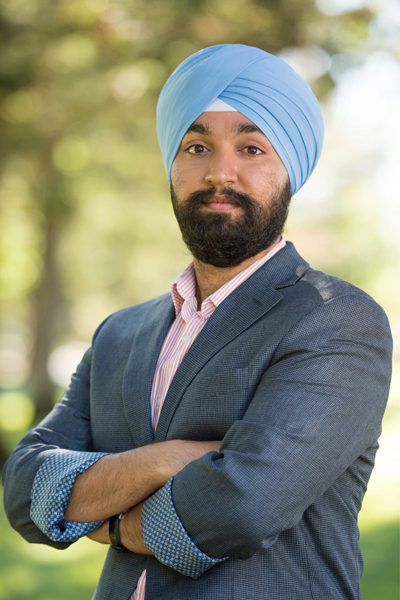To help illustrate where the pursuit of innovation management can lead, we’re pleased to introduce our new Innovation Pathways series, where we ask our current students, recent graduates, and established alumni to describe their journeys. We begin with this post from first year MBA student Gobind Johar. Read more Innovation Pathways posts here.

What was your role prior to pursuing your MBA at Wharton?
Before Wharton, I was a software engineer at Google. I was fortunate enough to work on Google Translate, a product that is used by hundreds of millions of people around the planet. Helping people through this product really made me appreciate the power of technology and how it can be used to solve real problems!
What did you like about working within an established firm?
Lots of things. For starters, it confers credibility upon you as people can relate to you via the firm’s brand. Second, there are clear goals and objectives outlined by the firm which make it easy to align products and decisions. Finally, working at an established firm comes with its perks. For instance, you get to have free food!
When you came to Wharton did you know you wanted to work in the innovation space within a mid/large size firm? If so, what brought you to that decision?
Absolutely! It is doubly important for established firms to innovate as they strive to stay relevant in the face of blistering competition both from other established firms as well as startups. I believe that firms can use their brand power and resources to fuel intrapreneurship, thereby increasing their chances of survival and growth.
Describe how you have been involved with the Mack Institute (programs, fellowships, etc.)
Most of my involvement with the Mack Institute has come via Wharton’s Innovation and Design Club of which I am now a co-President. Last year, I organized several workshops as the Vice President of Education to familiarize students with design thinking. I also supported the club at various events such as the iDesign series of workshops as well as Penn Design Challenge. Finally, my interest in automotive technology drew me towards Mack Institute’s vehicle innovation initiative and I am now helping them pave the way for more student body involvement.
What’s the most useful thing you’ve learned through these experiences?
The most useful thing I have learned is how to combine convergent and divergent thinking in a single process. Generally speaking, we are good at one or the other, but it is very difficult to context switch and think about things differently as part of the same process. Allowing yourself to be divergent — to creatively explore several potential solutions — before converging on a single answer gives you the chance to assess alternatives and appreciate the nuances of the problem at hand, thereby resulting in a better solution.
What interests you about studying/practicing innovation management?
Innovation is not simply about solving new problems, but also about existing solutions and how we can make them better. Challenging the status quo was what got us to discover that the earth revolves around the sun and not vice versa. To me, innovation management is the manifestation of this thought process in today’s firms. And like any other art, it can be learned, practiced and applied to different domains. I think innovation is going to be key to any firm’s competitive advantage which makes this field of study all the more interesting.
What are you hoping to pursue post-graduation? If you have a position secured, what are you looking forward to most in beginning your new role?
Post-graduation, I’d like to lead development and deployment of self-driving cars as the technology moves from research labs into production. The looming self-driving car revolution is going to change our lives in so many ways! Transportation is a growing problem in all major cities around the world and we can take the bull by its horns via this new technology.
Gobind Johar is a first year MBA student at Wharton. Prior to Wharton, he worked as a software engineer at Apple and then at Google where he worked on products like FaceTime, iMessage and Google Translate. Gobind holds a Bachelor of Applied Sciences degree from the University of Waterloo, Canada and a graduate certificate from Stanford University specializing in advanced software systems. In his free time, he enjoys listening to classical music, working on his favorite side projects and reading Malcolm Gladwell’s books.



